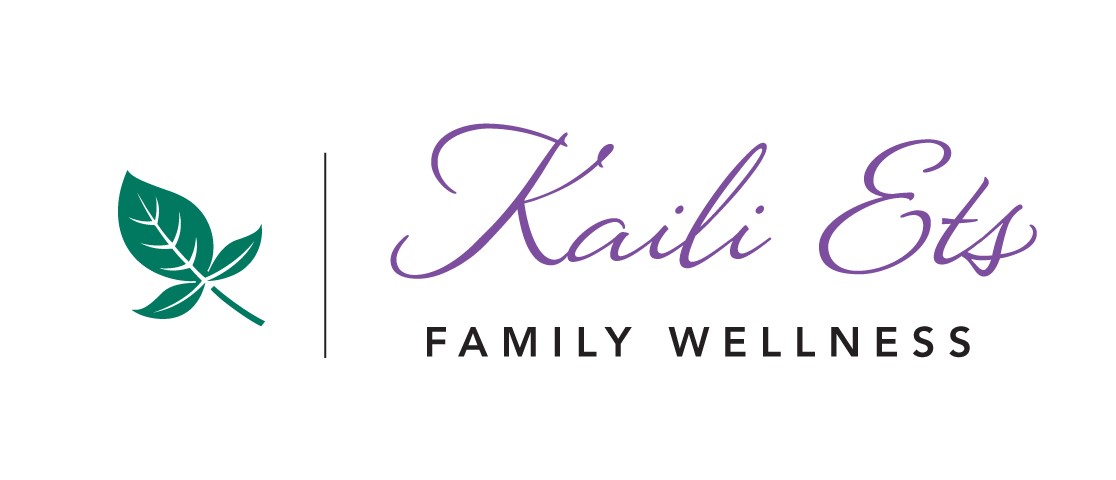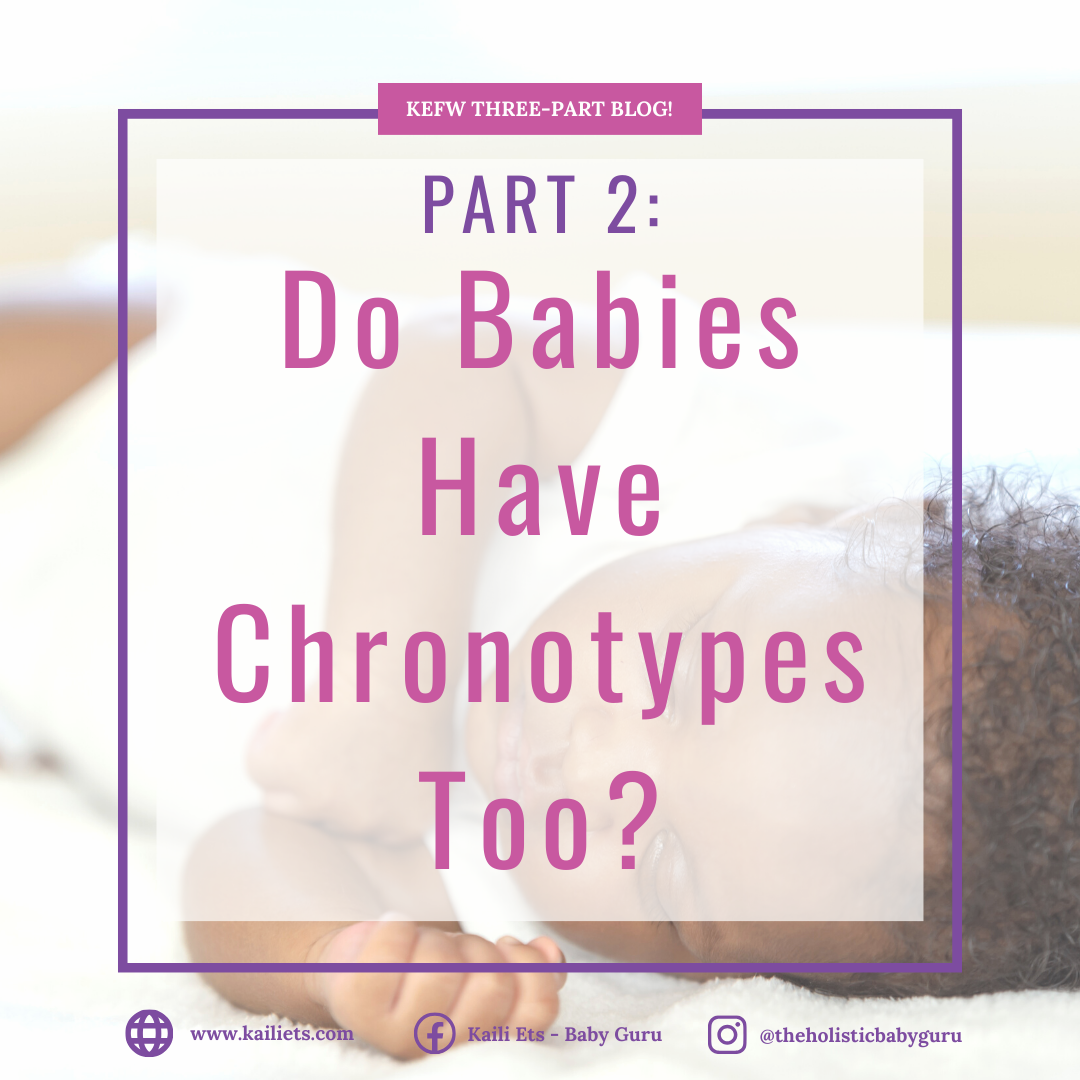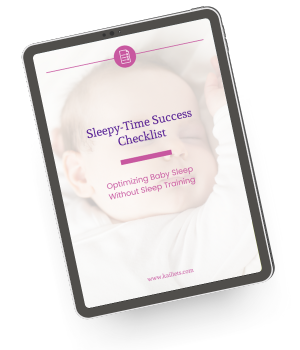Blog Part 2 of 3
You’ve likely heard of the concept of chronotypes and their relation to sleep. Otherwise, you wouldn’t have landed on this page. But perhaps you are wondering – do babies have chronotypes too? And if so, then which chronotype needs the most sleep? My hope is that by the end of this blog series, you will have figured that out for your unique child!
What are Chronotypes? Which Chronotype Needs The Most Sleep?
Your chronotype is influenced by genetics and driven by your circadian rhythm. It dictates the natural inclination of your body to sleep at a certain time, but is also related to your activity level and performance. You may have heard chronotypes referred to as an ‘early bird, lark, or lion’ or a ‘night owl or wolf’. The most common chronotype is actually the ‘bear’. We’ll get to that in a bit.
Your individual chronotypes is pretty permanent day to day. However, it does change slightly throughout your lifespan as your circadian rhythm and hormones change.
Do Babies Have Chronotypes Too? And Are They Important?
Yes, babies (and children) have chronotypes too – it is not just an adult concept! Remember that a chronotype is essentially a genetic trait, so you are born with it. It starts to become more prominent once the circadian rhythm matures, some time between 3-6 months, at which points your baby’s chronotype is set. This is likely part of the reason why around that 3-6 month mark, you notice changes in your baby’s sleep. They often start waking up earlier in the morning than they did as newborns. Chronotype is one piece of the sleep puzzle. And yes, a baby’s chronotype does affect their sleep preferences and sleep-wake cycles, just as much as it affects adults’.
How Do Babies’ Chronotypes Affect Sleep?
Remember I mentioned that your chronotype is dictated by your circadian rhythm. And your circadian rhythm is one very important component of sleep. At the end of the day, sleep comes most easily when your circadian rhythm and your homeostatic sleep pressure are aligned. Circadian rhythm dictates the release of melatonin (the hormone that helps you relax and fall asleep) and cortisol (the hormone that is involved in helping you wake up and be active during the day – and also involved in stress).
As you can see, your circadian rhythm plays a very important role in sleep. Since chronotypes are dictated by the circadian rhythm, they also play an important role when it comes to sleep and considering the timing of your baby’s bedtime routine. Understanding which chronotype your baby or child has is important. It will help you to support their bedtime routine with their body’s specific sleep-wake cycle, and find the optimal timing for them to go to sleep.
Now, you might be thinking, does my baby need a sleep schedule that is based on their chronotype? I discussed sleep schedules and why I don’t love them in part 1 of this blog series, which you can read here.
How Adults Benefits From Knowing Their Sleep Chronotype?
For adults, knowing your sleep chronotype can help you be aware of the optimal times for going to sleep, getting work done, exercising, and even when to drink coffee! Aligning your daily life with how your chronotype operates means you can improve not only your sleep quality but also your productivity and functioning during the day.
Of course for babies, we don’t need to get that intricate and detailed, because they are still little. And, we have way more important things to think about like making sure there are plenty of diapers and feeding is going well. Being aware that your baby is not waking up early just to piss you off can be somewhat comforting. It maybe even reduce some of the stress and overwhelm when it comes to their sleep!
In general the trend seems to be that older babies (ie. 9+ months) and toddlers tend to show a preference for earlier mornings. Teenagers tend to lean more towards the late evening night owl or wolf preference. Then as we enter into older adulthood this again shifts to an early morning preference. The shifts throughout our lifetime are largely dependent on hormonal shifts. Isn’t this cool?
Stay tuned for Part 3 of this blog series to learn about the 4 different chronotypes and figure out which one your baby is showing right now.





